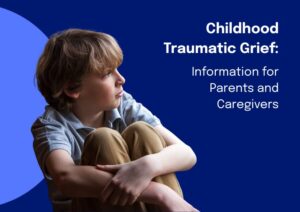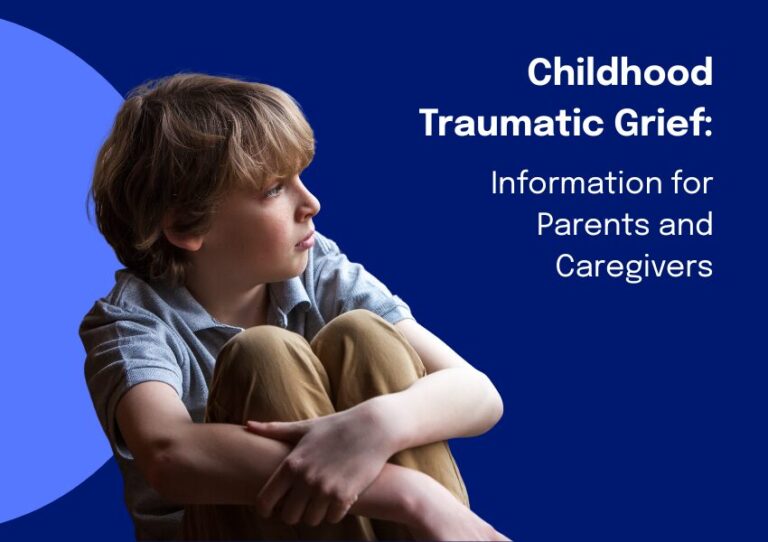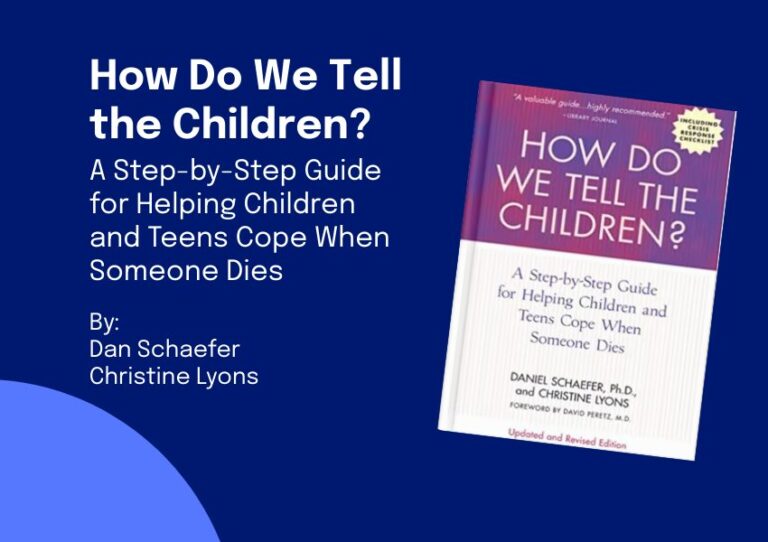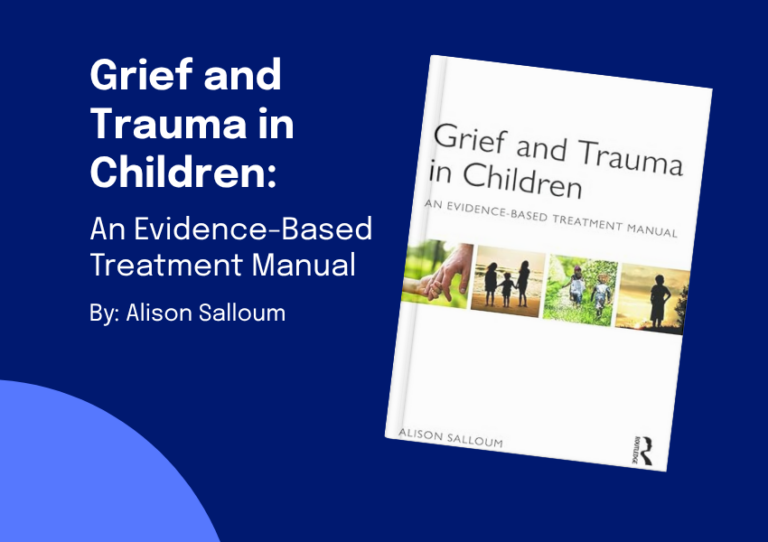Childhood Traumatic Grief: Information for Parents and Caregivers
 In Childhood Traumatic Grief, children have traumatic stress reactions to a death which interfere with their ability to accomplish the tasks of bereavement. When this happens, even happy thoughts and memories of the person remind children of the distressing way the person died.
In Childhood Traumatic Grief, children have traumatic stress reactions to a death which interfere with their ability to accomplish the tasks of bereavement. When this happens, even happy thoughts and memories of the person remind children of the distressing way the person died.
A younger child may be afraid to sleep alone at night due to nightmares about a shooting that she witnessed, while an older child may avoid playing on the school baseball team his father used to coach because it brings up painful thoughts about his father’s death in a terrible car accident. These children get “stuck” on the traumatic aspects of the death and cannot process their grief successfully. When children with Traumatic Grief have scary thoughts, upsetting memories, and negative feelings related to how the person died. They may also have uncomfortable physical symptoms.
To control and minimize the unpleasant feelings and reactions, they try to avoid the scary memories; avoid talking or thinking about anything related to the person or way the person died; and also avoid people, places, or things that trigger upsetting thoughts and feelings. These reactions and the fear of stirring up scary reminders make it difficult to remember positive things or to talk about the person and what the person meant to them.



